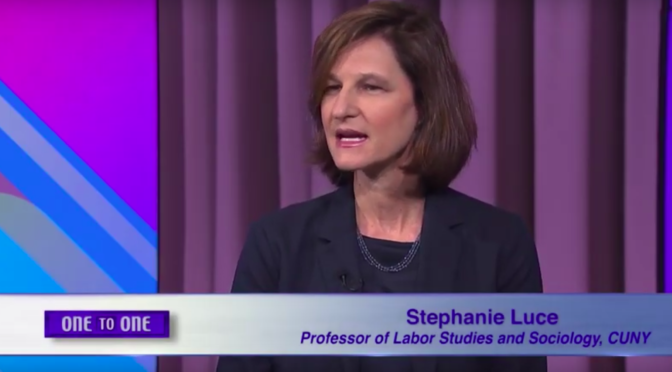Labor
-

New Labor Forum Highlights: November 2019
The New Labor Forum has a monthly newsletter on current topics in labor, curated by the some of the most insightful scholars and activists in the labor world today. Check out some highlights from the latest edition below. Two historically important strikes came to a close last week, as 49,000 GM workers returned to work after the…
-

Prof. Stephanie Luce Featured on CUNY TV
In June, Professor Stephanie Luce, Chair of SLU’s Department of Labor Studies, spoke with veteran New York Newsday columnist Sheryl McCarthy on the CUNY TV series “One to One.” The conversation centered on the annual “State of the Unions” report published by Luce and Professor Ruth Milkman, as well as larger trends affecting labor unions.
-

New Labor Forum Highlights: June 10th, 2019
The New Labor Forum has a bi-weekly newsletter on current topics in labor, curated by the some of the most insightful scholars and activists in the labor world today. Check out some highlights from the latest edition below. In the current issue of New Labor Forum , columnist Sarah Jaffe covers a very bright spot in the contemporary labor movement: the…



